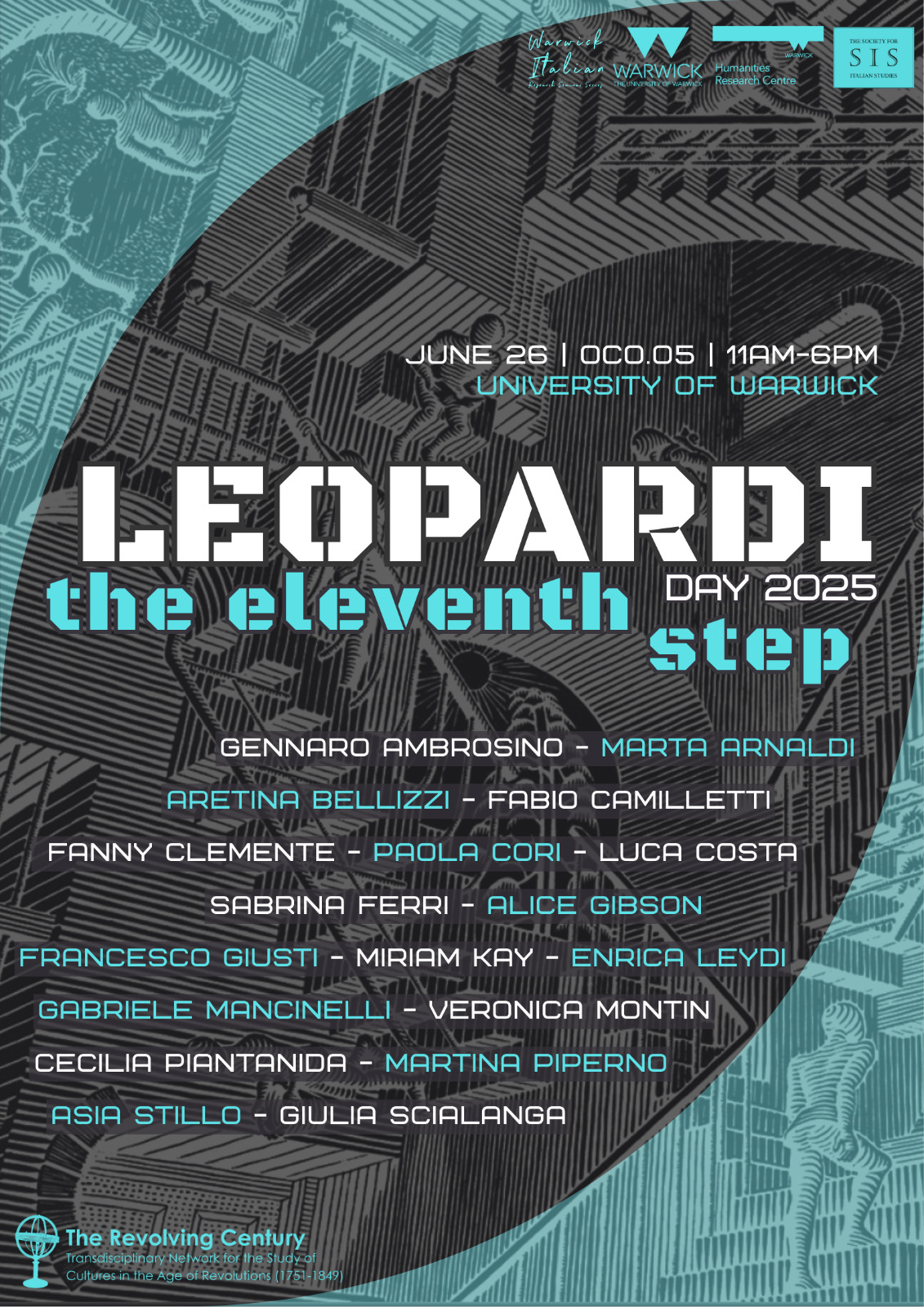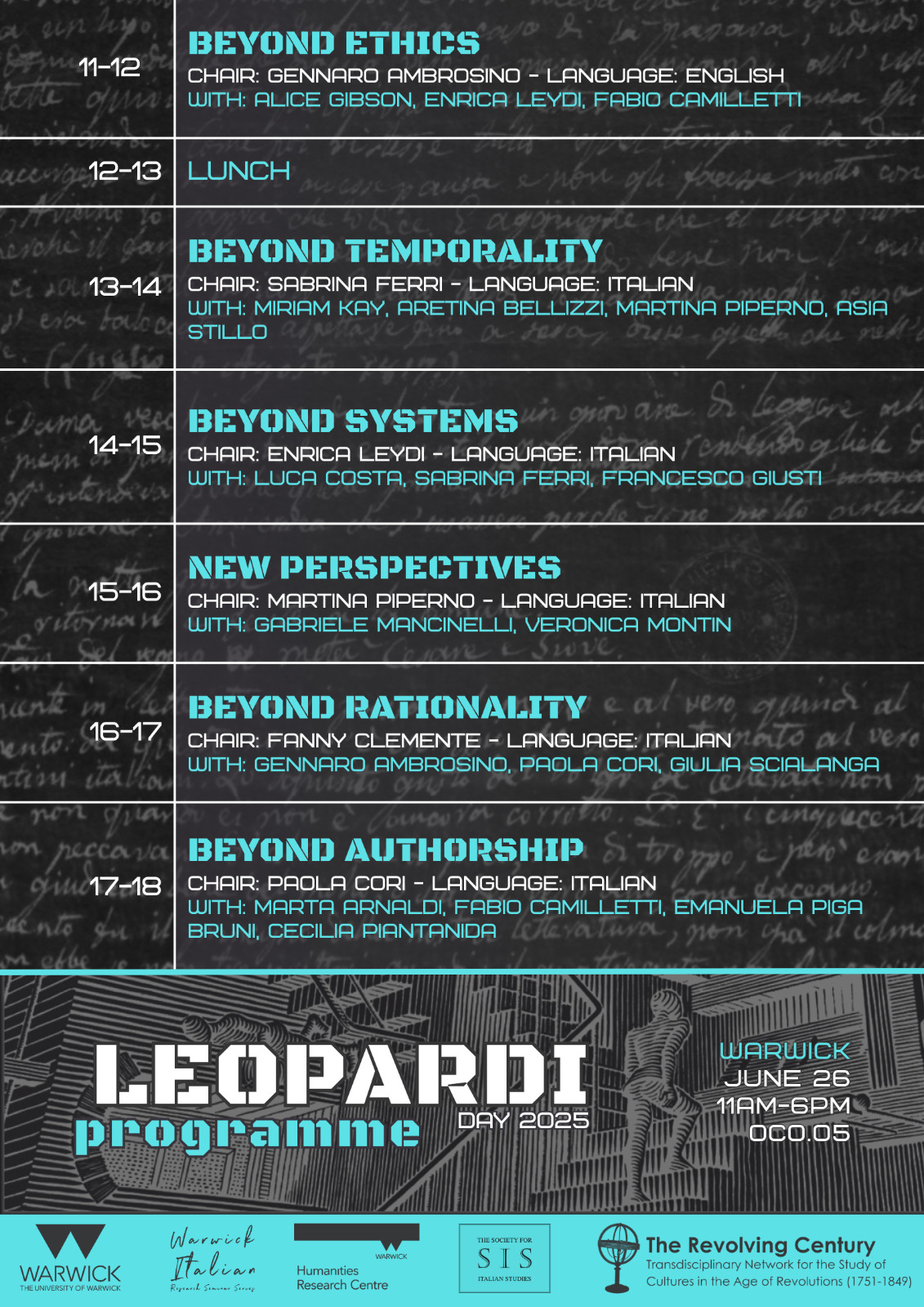The Leopardi Day has become a well-established annual tradition since its inception seventeen years ago and has previously been hosted by the Universities of Birmingham and Oxford. From the outset, the event has embraced a broad intellectual horizon, addressing themes that reach well beyond Leopardi’s œuvre to encompass the metamorphoses of authorial subjectivity, nihilism, the posthuman, and the overcoming of anthropocentrism. These explorations culminated, in 2015, in the publication of Ten Steps. Critical Inquiries on Leopardi, the first edited volume to approach Leopardi’s work through an explicitly theoretical and intersectional lens, engaging with such critical frameworks as postcolonial studies, queer theory, and disability studies.
This year’s edition – aptly titled to mark the tenth anniversary of Ten Steps – will bring together a scholarly community which, though geographically dispersed, is united by shared values and critical orientations. Over the past two decades, this community has grown significantly, contributing to the emergence of a distinct and recognisable body of Leopardi-related scholarship within the field of Italian Studies. It has produced works such as The Ethics of Giacomo Leopardi by Alice Gibson (2023), Contaminazioni Leopardiane (edited by Olmo Calzolari, Alessandra Aloisi, and Emanuela Tandello, 2024), Lessico leopardiano: la paura (edited by Fabio Camilletti and Giulia Scialanga, 2024), Technique, animalité et post-humanisme chez Giacomo Leopardi (edited by Valerio Camarotto, Laura Fournier, and Martina Piperno, special issue of Cahiers d’études italiennes, 2025), and the forthcoming special issue of The Italianist on Speaking with the Dead (edited by Gennaro Ambrosino, Fabio Camilletti, and Enrica Leydi).
This study day marks the beginning of a new chapter in this shared intellectual journey: an opportunity to reflect on past achievements while venturing into new directions. It aims to place Leopardi-related scholarship in dialogue with urgent contemporary concerns: ethical challenges; shifting temporal regimes in an era beset by nostalgia; the instability of theoretical systems; the crisis of the rationalism/irrationalism dichotomy in our technomagical present; and the metamorphoses of authorship in the age of artificial intelligence.


